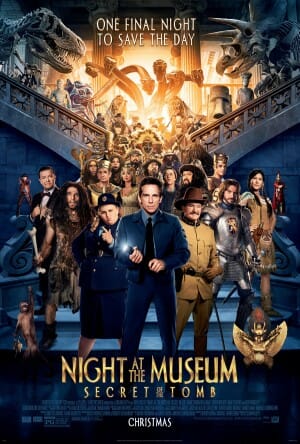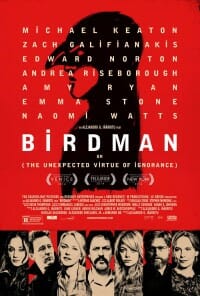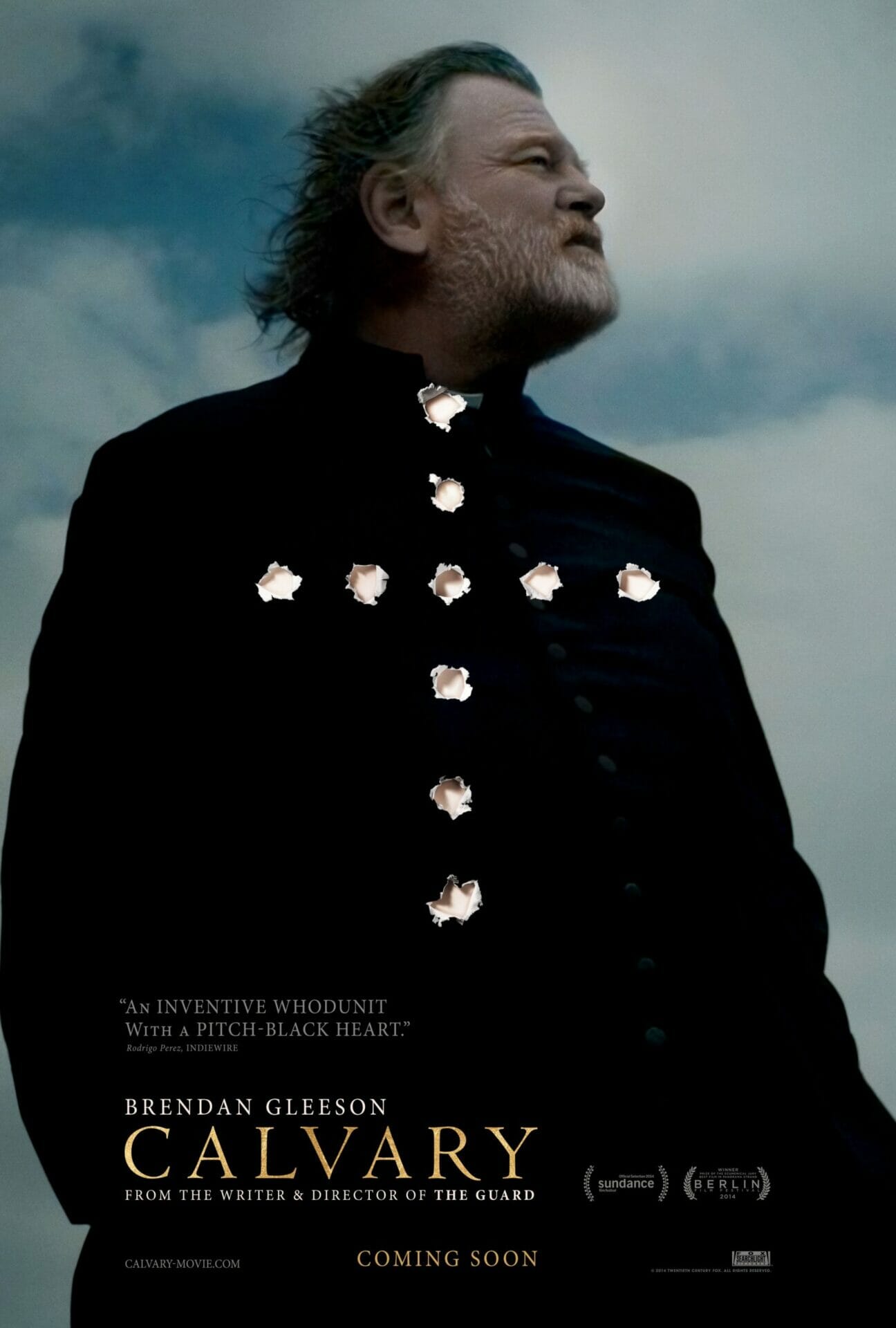In 1935, the Fox Film Corporation (founded by producer William Fox in 1915) merged with Twentieth Century Pictures (founded in 1933) to form 20th Century Fox. It was in the mid-1980s that Rupert Murdoch bought the studio, making it a subsidiary of News Corporation. 20th Century Fox is now a part of parent-company 21st Century Fox. Among Fox’s most famous films are early blockbuster franchises like Star Wars, Alien, and Die Hard.
Aside from Walt Disney Studios, 20th Century Fox has one of the slightest track records when it comes to inclusive films, but it includes a few standouts in its repertoire. Myra Breckinridge (1970) and The Rocky Horror Picture Show (1975) contain some of the earliest significant transgender characters, though both depictions are arguably more sensationalized than truthful. In 1982 the studio released the drama Making Love, which was one of the first (and only) realistically depicted gay love stories ever made by a major studio. Other inclusive films released over the years include Silkwood (1983), The Object of My Affection (1998), and The Family Stone (2005).
In 2014, 20th Century Fox released 17 films, of which 3 included appearances by LGBT people, amounting to 18%. All of these films passed the Vito Russo Test.
EXODUS: GODS AND KINGS
Widest theatrical release: 3503 theaters
Most of the public criticism levied at Exodus: Gods and Kings centered on the fact that nearly every important role in this Egypt-set story was played by white actors, though it also happened to feature one of the year's worst depictions of a gay character. In the film, Viceroy Hegep is the man in charge of Egypt's slave workforce, who is presented as a loathsome figure that regards the slaves as little more than livestock. He is also quickly shown to be overtly effeminate, vain, greedy, inhumane, and duplicitous. When it's discovered that he has also been misappropriating funds, Hegep is happy to offer Moses sexual favors in exchange for his silence, asking him "Is there any way that I could please you?" with a slimy inflection meant to elicit disgust and/or laughter from the audience. Practically every appearance he makes onscreen demonstrates a character trait meant to make the audience loathe him further, so that his eventual death – getting run over by a chariot in what is probably the most "humorously" staged death scene in the film – will be all the more satisfying to watch. This ugly, spiteful caricature harkens back to a time when Hollywood routinely depicted LGBT people as abhorrent villains the audience would naturally root against. For anyone who thinks those days are behind us, Hegep and his pronounced lisp prove that isn't the case
 HOW TO TRAIN YOUR DRAGON 2
HOW TO TRAIN YOUR DRAGON 2
Widest theatrical release: 4268 theaters
One of the biggest reveals of a gay character in 2014 happened before the film featuring him even made it to theaters when it was revealed that Gobber the Viking would be "coming out" in the animated family film How to Train Your Dragon 2. Writer/director Dean DeBlois mentioned in interviews that voice-actor Craig Ferguson had ad-libbed a line that effectively "outed" his character, which made it into the final cut of the film. Yet, the actual line was more a toe in the water than a proud pronouncement: "This is why I never married. That, and one other reason." In fact, without the additional context provided by the filmmakers and press, Gobber's orientation would be no more than an insinuation. For those audience members who saw the stories about his "coming out" however, it was one of the few times they might see a gay character appear in a film of this kind. Hopefully, Gobber can be a bit more forthright in future depictions of the character.
 NIGHT AT THE MUSEUM: SECRET OF THE TOMB
NIGHT AT THE MUSEUM: SECRET OF THE TOMB
Widest theatrical release: 3914 theaters
The third film in the Night at the Museum franchise featured many of the same characters introduced in the earlier films, including the pint-sized Roman general Octavius, played by Steve Coogan. This time around, many of Octavius' scenes seemed to repeatedly suggest that he was gay, or at least attracted to other male characters. In a near-death situation early in the film, Octavius asks his cowboy friend Jedidiah to take his hand, though Jedidiah seems puzzled and declines. Twice, Octavius is also shown to be quite taken with the appearance of the knight Sir Lancelot, remarking about how handsome he is and his "huge sword and hypnotic blue eyes." These scenes don't quite add up to Octavius "coming out," but it seems clear that the film wants the audience to get the hint. For mass-appeal family comedies like Night at the Museum, content like this is still quite rare, making Secret of the Tomb a promising (if slightly tepid) sign of progress.
THE OTHER WOMAN
Widest theatrical release: 3306 theaters
In this female-driven revenge comedy, three women plot to take down the man who has been carrying on secret relationships with each of them. One of their acts of retaliation includes his wife secretly feeding him estrogen pills and later telling her co-conspirators, "I gave him enough for a pre-op transsexual." Another thoroughly bizarre scene sees the man agree to a “three-way” with his youngest mistress and another woman named "Dana," who he is instructed to go meet at the bar. Upon walking up to her, Dana turns out to be a bearded, hairy chested man in a wig and garish women's clothes who immediately lifts him into the air and begins forcing kisses on his face. The scene is constructed so broadly that it's difficult to tell exactly who Dana is supposed to be, but it's one of two things. If Dana is meant to be the filmmakers' sophomoric approximation of a transgender woman, it's far and away one of the most offensive representations we've seen in years. If instead, Dana is a man who agreed to dress in drag and harass the cheating man as part of the revenge plot, then it's meant to be a gross-out moment steeped in gay-panic and trans-panic. Because of how cartoonish Dana appears, we're inclined to assume it’s the latter, but it’s a defamatory scene either way.

Fox Searchlight Pictures, created in 1994, is a subsidiary of 20th Century Fox that specializes in the release and distribution of independent and foreign films in the United States, as well as horror films and dramedies. Fox Searchlight Pictures is responsible for the release of several LGBT-inclusive and Academy Award-winning and nominated films, including Boys Don't Cry (1999), about the murder of transgender man Brandon Teena, and Kinsey (2004), a biopic of the famed sex researcher.
 BIRDMAN: OR (THE UNEXPECTED VIRTUE OF IGNORANCE)
BIRDMAN: OR (THE UNEXPECTED VIRTUE OF IGNORANCE)
Widest theatrical release: 976 theaters
The Oscar-winning film Birdman gives a behind the scenes look at a Broadway play and the mind of its star, and includes a brief kiss between the two actresses starring in the play. After weepily commiserating about their failing relationships with their boyfriends (the play's other two stars), Laura kisses Lesley in her dressing room, prompting the initially surprised Lesley to ask her to do it again. However, moments after they passionately embrace, the kiss is interrupted and the moment is never addressed again. Based on this scene and an earlier comment by Laura that Lesley has "a nice ass," GLAAD is counting the two minor characters as bisexual; however, it must also be acknowledged that many viewers won't interpret the scene or characters in the same way. Considering how abrupt the moment is and how little screen time the two actresses get afterwards, the kiss unfortunately comes across as more in the service of a voyeuristic thrill than anything to do with authentic character development. How that can be read in the context of the film's larger themes is very much up to interpretation.
![FOXSearchlight_Calvary-75d | GLAAD]() CALVARY
CALVARY
Widest theatrical release: 322 theaters
Calvary stars Brendan Gleeson as a priest in a small Irish town who is told in the confessional that someone intends to murder him within a week, prompting him to reach out to family and neighbors. Among them is Inspector Stanton, a gay man Father James visits to borrow a weapon. When we first meet him, Stanton has just finished sleeping with a local hustler named Leo, who flirts with the priest before leaving the two men alone. Both Leo and Stanton make additional appearances later on in the film, which features a wide variety of characters Father James encounters over the course of several days. Though they aren't among the film's core cast, both are distinct and fairly non-stereotypical.
DOM HEMINGWAY
Widest theatrical release: 129 theaters
This film opens with the lead character Dom Hemingway receiving oral sex from a male inmate while they are both incarcerated. Given that the scene takes place in a prison, the interaction could easily be seen as situational or transactional rather than indicative of either man's sexual orientation. In fact, the scene is immediately followed by the onscreen words, "12 years is a long time." With no evidence to suggest otherwise, GLAAD did not count either as a gay or bisexual character.
THE GRAND BUDAPEST HOTEL
Widest theatrical release: 1467 theaters
Some have interpreted the protagonist of Grand Budapest Hotel – M. Gustave – as a bisexual character based on a few lines, including the film's antagonist calling him such. In one scene, the villainous Dmitri accuses Gustave of sleeping with old women and being a "f*ggot," which Gustave points out is a contradiction. Dmitri then says Gustave is bisexual to justify both of his previous attempts to insult him. A later scene sees some of Gustave's fellow prisoners call him "a real straight fellow," to which Gustave responds, "Well I've never been accused of that before, but I appreciate the sentiment." This too, could be seen more as a comment on others' perceptions of him as opposed to an admission on his part. Collectively, this could be seen as strong hinting on the part of the screenplay, but is not ultimately indicative of Gustave's sexual orientation.


 HOW TO TRAIN YOUR DRAGON 2
HOW TO TRAIN YOUR DRAGON 2 NIGHT AT THE MUSEUM: SECRET OF THE TOMB
NIGHT AT THE MUSEUM: SECRET OF THE TOMB BIRDMAN: OR (THE UNEXPECTED VIRTUE OF IGNORANCE)
BIRDMAN: OR (THE UNEXPECTED VIRTUE OF IGNORANCE) CALVARY
CALVARY










